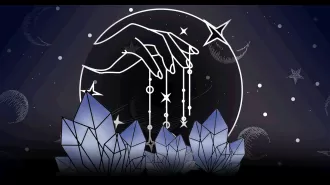Cheap games, Forza issues, and interviews with Xbox head Phil Spencer - all discussed in the Games Inbox.
Why do people cheat in online gaming? A reader ponders the third remake of Final Fantasy 7.
October 16th 2023.

I can totally understand the recent Reader’s Feature about the cost of video games and how they seem to be getting more and more expensive. It’s not like the publishers are being greedy, it just costs a lot of money to make good-looking games and that cost is being passed on to the consumer. However, I’m not giving up just yet and I never pay full price for anything.
Buying physical copies is the obvious way to save money, as you can then sell the game on. Plus, if you’re patient you can usually save up to 50% in less than six months, including on big name games like we saw with the recent Prime Day event. Sales are also available throughout the year, so even if you don’t catch one of those big discounts you can still find cheaper options in indie games. You just need a bit of patience and you can save quite a bit of money on video games.
I’ve been playing a lot of old games lately, and just put a few hours into Star Trek: Conquest. The gameplay is pretty simple but it’s very enjoyable if you’re a Star Trek fan. I’m curious to know if you guys at GameCentral ever play games in your spare time? I imagine your job is great, but I still bet it’s still work!
I also wanted to ask why people cheat at online multiplayer games. What do they think they’re achieving if they’re getting the most kills or highest ranking if it’s not a real achievement? It’s like getting recognition for a sporting achievement when you’ve taken performance enhancing drugs. I stopped playing online because of all the cheaters, but I wonder if anyone would write in and explain why they do it.
I recently bought Forza Motorsport Premium for the Xbox Series X and paid £90 for it. Unfortunately, the game locks up within 5 seconds of launching it. I contacted Microsoft and Forza but they just gave me a list of things to do which I’ve already done. I’ve even left a review for the Xbox Series X since I’ve spent £90 on a game I can’t play.
When I buy a game, I want to beat it. That’s the only way I feel like I’m getting my money’s worth, especially when I’m on Universal Credit and that money could have gone on food or books. But sometimes sequels can disappoint, or I can find myself in the minority for a critically acclaimed title, or I just lose interest. When I message in I’m usually trying to thank you guys for your help!
It also seems like game development is becoming repetitive, with the same gear systems, third person scenes, and rotation features appearing in many games. Even acclaimed titles like Ghost Recon and Far Cry have surrendered to this formula. Franchises like FIFA, UFC, Madden, WWE, and Call Of Duty are all in the same boat. Game development used to be a sanctuary for creativity and innovation, but now it’s just becoming a monetized honey pot.
Are we witnessing the decline of creativity in the gaming universe? Is the very essence of gaming being overshadowed by the relentless pursuit of profits? These are important questions that deserve our attention, if we want to preserve the true spirit of gaming. We need to protect it from the clutches of commercialisation and strive to revive the lost essence of authentic gameplay experiences.
I can totally understand the Reader's Feature from the weekend about the price of Spider-Man 2 and how video games feel like they have just crossed a line with how expensive they are now. It's not even necessarily the publishers being greedy, it's just that good-looking games can be incredibly expensive to make and that cost is being passed on to the buyer.
For me, I'm not giving up, but I will never pay full price for anything. Buying physical is the obvious way round the problem, as you can sell the game on after. But simply waiting can save you anything up to 50% in less than six months, even for big name games like we saw with the recent Prime Day event. Sales are also fairly constant throughout the year, and when they're not on, there's always indie games which are both cheaper and, if you pick carefully, often better.
I usually spend my weekends going through old games and I've just put a few hours into Star Trek: Conquest. The gameplay is pretty simplistic, but it is very enjoyable if you are a Star Trek fan, and a great pick up and play for a strategy game. All the major races are there and it's just a lot of fun.
The Monday Letters page asked why people cheat at multiplayer video games, and I was wondering if they could ask people who cheat at online multiplayer to explain why they do it. What do they think they have achieved by getting the most kills or highest ranking if it's not a real achievement? It's the same as getting recognition for a sporting achievement if you have taken performance enhancing drugs, or people saying you look totally amazing even though you have photoshopped your pics. What's the point of receiving praise if it's not actually earned? I personally stopped playing online due to the cheats.
The thing that strikes me about all the goings on with the FTC vs. Microsoft, and CMA, Nintendo, etc. is how much of a charlatan Phil Spencer is. I can live with big wigs, but it's the fact that he plays this image of being a gamer first and foremost. I'm sure he'll be doing the rounds of financial papers and websites for the next few weeks though.
Oh yeah, I absolutely want to beat every game I buy! You don't feel like you're getting your money's worth otherwise. Even for me, as I like to shop around to get the best deal, that still means about £40-45. That's a significant chunk of money, especially when you're on Universal Credit with what feels like a permanent mental illness. That money could have gone on food, a couple of DVDs, or even a few books!
It seems like the once diverse and imaginative landscape of game development is gradually succumbing to a monotonous cycle. Yes, we're talking about the increasingly apparent replication of game mechanics, pushing us into a vortex of uniformity. Ubisoft, once renowned for its diverse game offerings, has recently fallen prey to a formulaic approach. Even acclaimed titles like Ghost Recon and Far Cry have reluctantly surrendered to this seemingly never-ending cycle. But hold on, it's not just Ubisoft facing this dilemma. Our beloved franchises like FIFA, UFC, Madden, WWE, and even the iconic Call Of Duty are all sailing in the same boat.
Game development, once a sanctuary for creativity and innovation, is now gradually morphing into a monetized honey pot, ceaselessly draining the pockets of passionate gamers. It's becoming an addiction, an impulse-driven descent into an endless loop of purchases, often yielding less substance than ever before.
The question arises – are we witnessing the decline of creativity in the gaming universe? Is the very essence of gaming being overshadowed by the relentless pursuit of profits? These are queries that deserve our attention, calls to action for the preservation of the true spirit of gaming. Until next time, stay vigilant, and let us not forget that gaming is meant to be an immersive, creative, and delightful escape. Let's safeguard it from the clutches of commercialisation and strive to revive the lost essence of authentic gameplay experiences.
Buying physical copies is the obvious way to save money, as you can then sell the game on. Plus, if you’re patient you can usually save up to 50% in less than six months, including on big name games like we saw with the recent Prime Day event. Sales are also available throughout the year, so even if you don’t catch one of those big discounts you can still find cheaper options in indie games. You just need a bit of patience and you can save quite a bit of money on video games.
I’ve been playing a lot of old games lately, and just put a few hours into Star Trek: Conquest. The gameplay is pretty simple but it’s very enjoyable if you’re a Star Trek fan. I’m curious to know if you guys at GameCentral ever play games in your spare time? I imagine your job is great, but I still bet it’s still work!
I also wanted to ask why people cheat at online multiplayer games. What do they think they’re achieving if they’re getting the most kills or highest ranking if it’s not a real achievement? It’s like getting recognition for a sporting achievement when you’ve taken performance enhancing drugs. I stopped playing online because of all the cheaters, but I wonder if anyone would write in and explain why they do it.
I recently bought Forza Motorsport Premium for the Xbox Series X and paid £90 for it. Unfortunately, the game locks up within 5 seconds of launching it. I contacted Microsoft and Forza but they just gave me a list of things to do which I’ve already done. I’ve even left a review for the Xbox Series X since I’ve spent £90 on a game I can’t play.
When I buy a game, I want to beat it. That’s the only way I feel like I’m getting my money’s worth, especially when I’m on Universal Credit and that money could have gone on food or books. But sometimes sequels can disappoint, or I can find myself in the minority for a critically acclaimed title, or I just lose interest. When I message in I’m usually trying to thank you guys for your help!
It also seems like game development is becoming repetitive, with the same gear systems, third person scenes, and rotation features appearing in many games. Even acclaimed titles like Ghost Recon and Far Cry have surrendered to this formula. Franchises like FIFA, UFC, Madden, WWE, and Call Of Duty are all in the same boat. Game development used to be a sanctuary for creativity and innovation, but now it’s just becoming a monetized honey pot.
Are we witnessing the decline of creativity in the gaming universe? Is the very essence of gaming being overshadowed by the relentless pursuit of profits? These are important questions that deserve our attention, if we want to preserve the true spirit of gaming. We need to protect it from the clutches of commercialisation and strive to revive the lost essence of authentic gameplay experiences.
I can totally understand the Reader's Feature from the weekend about the price of Spider-Man 2 and how video games feel like they have just crossed a line with how expensive they are now. It's not even necessarily the publishers being greedy, it's just that good-looking games can be incredibly expensive to make and that cost is being passed on to the buyer.
For me, I'm not giving up, but I will never pay full price for anything. Buying physical is the obvious way round the problem, as you can sell the game on after. But simply waiting can save you anything up to 50% in less than six months, even for big name games like we saw with the recent Prime Day event. Sales are also fairly constant throughout the year, and when they're not on, there's always indie games which are both cheaper and, if you pick carefully, often better.
I usually spend my weekends going through old games and I've just put a few hours into Star Trek: Conquest. The gameplay is pretty simplistic, but it is very enjoyable if you are a Star Trek fan, and a great pick up and play for a strategy game. All the major races are there and it's just a lot of fun.
The Monday Letters page asked why people cheat at multiplayer video games, and I was wondering if they could ask people who cheat at online multiplayer to explain why they do it. What do they think they have achieved by getting the most kills or highest ranking if it's not a real achievement? It's the same as getting recognition for a sporting achievement if you have taken performance enhancing drugs, or people saying you look totally amazing even though you have photoshopped your pics. What's the point of receiving praise if it's not actually earned? I personally stopped playing online due to the cheats.
The thing that strikes me about all the goings on with the FTC vs. Microsoft, and CMA, Nintendo, etc. is how much of a charlatan Phil Spencer is. I can live with big wigs, but it's the fact that he plays this image of being a gamer first and foremost. I'm sure he'll be doing the rounds of financial papers and websites for the next few weeks though.
Oh yeah, I absolutely want to beat every game I buy! You don't feel like you're getting your money's worth otherwise. Even for me, as I like to shop around to get the best deal, that still means about £40-45. That's a significant chunk of money, especially when you're on Universal Credit with what feels like a permanent mental illness. That money could have gone on food, a couple of DVDs, or even a few books!
It seems like the once diverse and imaginative landscape of game development is gradually succumbing to a monotonous cycle. Yes, we're talking about the increasingly apparent replication of game mechanics, pushing us into a vortex of uniformity. Ubisoft, once renowned for its diverse game offerings, has recently fallen prey to a formulaic approach. Even acclaimed titles like Ghost Recon and Far Cry have reluctantly surrendered to this seemingly never-ending cycle. But hold on, it's not just Ubisoft facing this dilemma. Our beloved franchises like FIFA, UFC, Madden, WWE, and even the iconic Call Of Duty are all sailing in the same boat.
Game development, once a sanctuary for creativity and innovation, is now gradually morphing into a monetized honey pot, ceaselessly draining the pockets of passionate gamers. It's becoming an addiction, an impulse-driven descent into an endless loop of purchases, often yielding less substance than ever before.
The question arises – are we witnessing the decline of creativity in the gaming universe? Is the very essence of gaming being overshadowed by the relentless pursuit of profits? These are queries that deserve our attention, calls to action for the preservation of the true spirit of gaming. Until next time, stay vigilant, and let us not forget that gaming is meant to be an immersive, creative, and delightful escape. Let's safeguard it from the clutches of commercialisation and strive to revive the lost essence of authentic gameplay experiences.
[This article has been trending online recently and has been generated with AI. Your feed is customized.]
[Generative AI is experimental.]
0
0
Submit Comment





